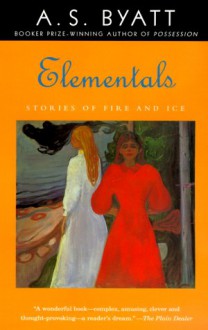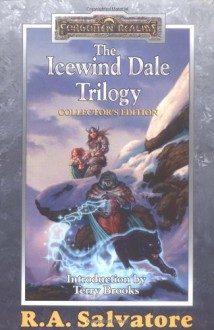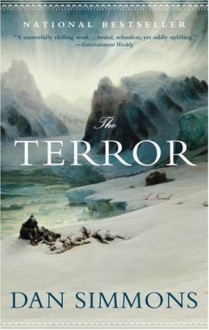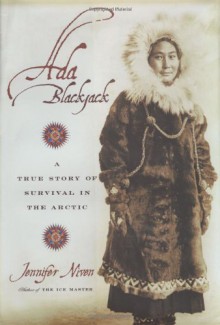
One of the most fascinating literary documents of 20th century music has to be the alleged memoirs of Dimitri Shostakovich, known as Testimony in English translation. The book has inspired intense debate since its publication in 1979 (when the USSR remained firmly in existence) with a reputation that has waxed and waned ever since. The story is simple: Solomon Volkov, then a young musicologist in Leningrad, befriended the great composer Dimitri Shostakovich. Over period of time they became more intimately acquainted, and according to Volkov, Shostakovich began reluctantly revealing details of his private life and thoughts. Volkov recorded these in succeeding interviews, until Shostakovich became more loquacious, eventually writing out long passages himself. Volkov smuggled the manuscript out of the USSR with the promise not to publish them until after the composer’s death. Shostakovich died in 1976, and Volkov found eager interest in the West for the uncensored memoirs of a much-loved and much-persecuted Soviet composer.
Soon after its release, Testimony was translated into some 30 languages—but not Russian, for obvious reasons—and set the musical world aflame. Musicians and musicologists gave a second look to Shostakovich’s compositions, which apparently were shot through with hidden codes that allowed him to condemn Soviet oppression and serve as “tombstones” for victims of Soviet and Fascist tyranny. Most shocking of all was the admission that his famous Seventh Symphony, which depicts the arrival of German troops to Leningrad with an insistent, banal march theme, was actually written much earlier to portray Stalin’s propagandistic mayhem (yet music can mean whatever the times demand, so Stalin’s massacre easily became Hitler’s). Testimony revealed the seemingly docile member of the Communist party as a sardonic, deeply insightful critic of Soviet institutions and much of 20th century musical and cultural life. A typical example of his anti-Soviet wit:
“I hear many mediocre musicians. A great many. But they have the right to live. It’s only song-and-dance ensembles like the Red Army chorus that drive me crazy. If I were suddenly to become minister of culture, I would immediately disband all these ensembles. That would be my first order. I would naturally be arrested immediately for sabotage, but they would never reorganize the scattered ensembles” (23).
Almost immediately upon its publication in the West, many Soviet musicians—including the composer’s own son, Maxim—condemned the book as an outright fabrication. Volkov, as a recent defector, was simply trying to make a name for himself and take a shot at the USSR by defaming its most celebrated modern composer. Russian musicians in the West, however, were less sure: Mstislav Rostropovich, the cellist and conductor, who had left Russia in 1974 and knew Shostakovich intimately, felt it was a true portrait. Others who had contact with him, such as the pianist and conductor, Vladimir Ashkenazy, concurred. After the fall of the Soviet Union, some detractors changed their tune, notably the composer’s son, who felt it was an accurate depiction of the times and the people, even if not wholly his father’s creation. In general, many who knew Shostakovich take this line of criticism: it is “based on” rather than “written by.”
Western academics have been savage in their attacks on the book, citing the lack of any kind of authenticity; where, for example, is the original manuscript which shows Shostakovich’s signature on several pages? Though Volkov deposited the original for safekeeping in a Swiss bank (and then sold it to a private collector) photocopies by the publisher exist and Laurel Fay, a prominent detractor, obtained one to examine. According to her, Shostakovich’s signature occurs almost nowhere on the manuscript, appearing only on a few pages which recycle previous published speeches, as if Volkov tricked him into verifying the memoirs. In articles and books, she claimed that Shostakovich barely knew Volkov, and would have never produced such a suicidal document or entrusted it into the hands of a mere acquaintance. This is the general tenor of scholarship today: Volkov is a clever fraud, offering a handful of anecdotes and authentic speeches into a fictional portrait of a famous composer. Which begs the question—is any of the work him? Can we read the book to gain any insight into Shostakovich’s life and works? Or must we dismiss (or enjoy) it as a fictional curiosity, much as Julian Barnes’ recent novel, The Noise of Time, uses Shostakovich as a fictional character?
Perhaps this is fiction, yet no culture has excelled in blurring the line between fact and fiction better than Russia. Russian literature is full of such artistic “forgeries,” from Tolstoy’s semi-autobiographical novels to the veiled, code-like satire of Bulgakov and Zamyatin. Testimony reads like a masterful novel, reeking of the sharp, acid wit of writers such as Zoshenko (whom Shostakovich quotes freely in the work) and Bulgakov (Master and Margarita especially). Indeed, one of the themes of the work is how often people lie both in life and fiction, and how nothing official can ever be trusted (even a composer’s own music). If Volkov had presented this as a fictional work, it would have won wide critical acclaim—though few outside musicologist circles would have read it. Perhaps it’s as simple as that, a marketing ploy. Yet we also have to ask ourselves is Volkov had the skill and ability to create “Shostakovich.” The man in the memoirs is a true literary creation: consistent, yet contradictory, heroic yet bitter, defeated without being cynical. It is a portrait worthy of Chekhov and seems beyond the abilities of a man who wrote no novels or literary works—merely academic books and articles (he wrote another memoir-interview with the Russian violinist Nathan Milstein which proved much less controversial).
Reading Testimony is like having a private conversation over late night drinks with a true sage of Russian music: Shostakovich was a living witness to history immediately before the Revolution, and watched its birth pangs to the rise of the mighty Soviet Union—and Stalin’s reign of terror. His ability to remember, to witness, and to authenticate details that most people willingly forgot is what makes the book such a riveting read (I almost said “novel”). Even if you have contempt for Volkov as a literary opportunist, it’s difficult to read the book without a fair amount of awe and enlightenment. In short, “Shostakovich” emerges as one of the greatest figures of the 20th century, enduring the crushing repression of a regime that tried to make all artists “engineers of human souls,” and all people mere cogs in a communist machine. Yet he emerged largely—if not completely—unscathed, able to write music that cut across borders and spoke to all peoples, at all times, and will certainly remain vital for years to come.
Below are a few passages which make Testimony sing and prove that something authentic and powerful exists in the book which belies its status as a fraudulent mockery. Perhaps this isn’t Shostakovich, and perhaps he is rolling in his metaphorical grave at the book’s very publication; yet the Shostakovich in the book would delight in the scandal that resulted, as he never wanted to be an establishment composer or a writer of two-bit propaganda. The composer wanted to be a contradiction, juxtaposing a noble hymn with a satiric jingle—yet all of it orchestrated beautifully and crafted in the best post-Mahlerian fashion. For better or worse, Testimony ‘sounds’ like Shostakovich’s music, and whenever I listen to late works such as Symphony No.13 “Babi Yar,” or the witty Symphony No.15, I hear the voice that admits, “I learned how to assess people, a rather unpleasant pastime, since it inevitably leads to disillusionment” (9).
“It’s so unfair. People suffered, worked, thought. So much wisdom, so much talent. And they’re forgotten as soon as they die. We must do everything possible to keep their memories alive, because we will all be treated in the same way ourselves. How we treat the memory of others is how our memory will be treated. We must remember, no matter how hard it is” (31).
“What I want to say is that what may remain “fresh and strong” may not be music at all, and not even creativity, but some other, more unexpected and prosaic thing, such as attentiveness toward people, toward their humdrum lives, filled with unpleasant and unexpected events, toward their petty affairs and cares, and toward their general lack of security. People have invented many curious things: the microscope, Gilette razor blades, photography, and so on, and so forth, but they still haven’t invented a way of making everyone’s life tolerable” (160).
“Glazunov [his teacher, a famous pre-Revolutionary composer] didn’t get on a soapbox or pretend to feel holy righteous wrath about [his beliefs/morals]. He didn’t demonstrate his high principles when it came to small and pathetic people. He saved this for more important people and more important functions. In the long run, all things in life can be separated into the important and the unimportant. You must be principled when it comes to the important things and not when it comes to the unimportant. That may be the key to living” (168).
“I think the greatest danger for a composer is a loss of faith. Music and art in general, cannot be cynical. Music can be bitter and despairing, but not cynical...If music is tragic, they say it’s cynical. I’ve been accused of cynicism more than once, and incidentally, not only by government bureaucrats. The Igors and Borises of our country’s musicologists added their two cents’ worth too. But despair and cynicism are different, just as ennui and cynicism are different. When a man is in despair, it means that he still believes in something” (175).
“Don’t believe humanists, citizens, don’t believe prophets, don’t believe luminaries—they’ll fool you for a penny. Do your own work, don’t hurt people, try to help them. Don’t try to save humanity all at once, try saving one person first. It’s a lot harder. To help one person without harming another is very difficult. It’s unbelievably difficult. That’s where the temptation to save all humanity comes from. And then, inevitably, along the way you discover that all humanity’s happiness hinges on the destruction of a few hundred million people, that’s all. A trifle” (205).


 Log in with Facebook
Log in with Facebook 



















